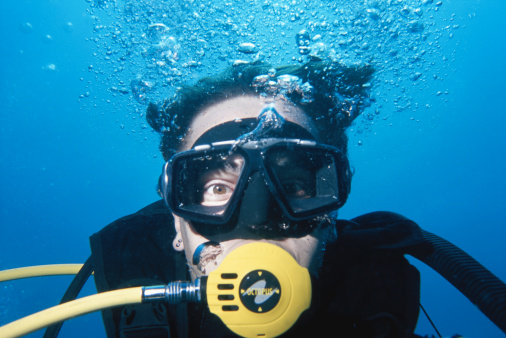Divers working in water contaminated by oil spills and dispersants used to control spills risk severe health problems and death because of the dangerous nature of these substances. After the 2010 British Petroleum (BP) disaster in the Gulf of Mexico, divers working in the Gulf began complaining of symptoms that are traced to exposure to the hazardous compounds found in both the oil and the chemicals used to clean the water.
BP Used Banned Dispersants

BP used unsafe dispersants in the Gulf disaster though they had been banned in its home nation, the United Kingdom, for more than a decade. “BP is using two products from a line of dispersants called Corexit, which EPA data appear to show is more toxic and less effective on South Louisiana crude than other available dispersants,” according to a May 18, 2010 article in ProPublica.
Serious Risks of Exposure
Corexit contains 2-butyoxyethanol, petroleum distillates and sulfonic acids. Since Corexit’s use in the 1989 Exxon Valdez disaster, exposure to these compounds has been linked to:
- Respiratory Issues
- Nervous System Problems
- Liver Disorders
- Kidney Disorders
- Blood Disorders
An article from Steve Kolian from the non-profit organization EcoRigs, discussed the dangers. He notes that Corexit exposure causes “lesions, sore throat, dizziness, central nervous system depression, kidney problems, liver problems and autoimmune depression. The presence of these symptoms, then leads to a predictable sequence of consequences: DNA replication problems, which usually leads to some forms of cancer, which then leads to death, as the Valdez oil spill track record has firmly established.”
BP Lied to Divers
Despite clear evidence of harm caused by the substances, commercial diver David Hogan of Texas was assured by BP officials that working in the contaminated waters of the Gulf was perfectly safe. He and his co-workers were further told they needed no special equipment, even after they noted unusual changes in their wetsuits after dives.

As reported in Facing South, the divers relied on these assurances and “worked as many as 20 hours per day for the next couple of weeks in heavily contaminated water. One diver began experiencing health problems while the work was still underway, and eventually the entire dive team developed health problems.”
Mr. Hogan began suffering rapid weight loss after the dives, dropping 60 pounds. He can no longer walk, has frequent seizures and is going blind. A lawsuit filed in the spring of 2012 by Mr. Hogan and his wife in Harris County Court alleges these symptoms are directly related to his exposure to known hazardous chemicals during his dives into the Gulf after the BP disaster. Two of the other divers working for the same company have committed suicide since their exposure to the dangerous waters, according to the lawsuit.
Contact Us
When a company puts profits ahead of safety and workers are injured as a result, these victims deserve compensation. If you or a loved one has suffered exposure to hazardous substances and wants to discuss legal options, contact our experienced attorneys for a free consultation.


